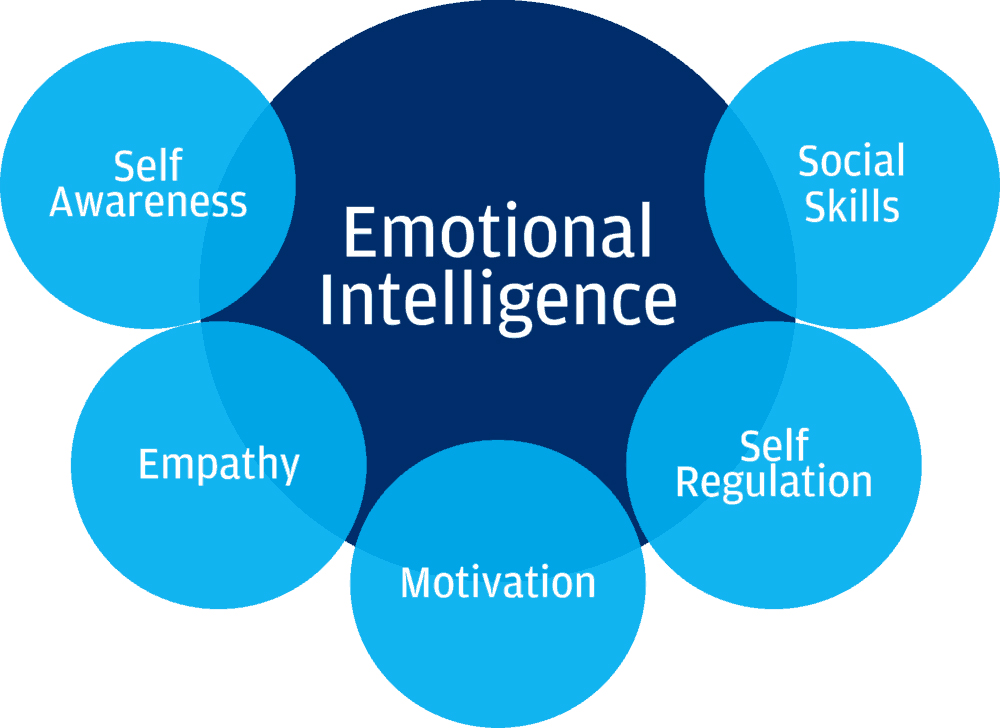EI or EQ refers to the ability to recognize, understand, manage, and express emotions effectively in oneself and others. It encompasses a set of skills that are crucial for navigating social interactions, managing stress, making decisions, and achieving personal and professional goals. In this article, we will explore the components of EI, its importance in various aspects of life, and practical strategies to enhance EQ.
Self-Awareness
Self-awareness involves recognizing and understanding one's own emotions, strengths, weaknesses, values, and motivations. It allows individuals to accurately assess their feelings and reactions in different situations, fostering a deeper understanding of themselves.
Self-Regulation
Self-regulation refers to the ability to manage and control one's emotions, impulses, and behaviors in constructive ways. It involves staying calm under pressure, adapting to changing circumstances, and avoiding impulsive reactions.
Personal Well-Being
Individuals with high EI tend to have greater self-confidence, resilience, and overall mental health. They are better able to manage stress, cope with challenges, and maintain positive relationships with others.
Interpersonal Relationships
Strong EI fosters healthy and fulfilling relationships. People with high EQ are empathetic listeners, communicate effectively, and resolve conflicts constructively. They understand the importance of emotional reciprocity and support in building strong connections.
Professional Success
In the workplace, EI is highly valued as it enhances leadership effectiveness, teamwork, and decision-making. Leaders with high EQ inspire and motivate their teams, handle conflicts diplomatically, and adapt to organizational changes with agility.
Overcoming Personal Biases and Blind Spots
Developing self-awareness involves confronting and understanding personal biases, blind spots, and ingrained patterns of thinking. It requires a willingness to explore uncomfortable emotions and reflect on how they influence behavior and decision-making.
Managing Stress and Emotions Effectively
Self-regulation is essential for managing stress and emotions effectively, but it can be challenging during times of high pressure or uncertainty. Building resilience and adopting healthy coping strategies are crucial for maintaining emotional balance and avoiding reactive responses.
Nurturing Empathy in Diverse Contexts
Empathy requires genuine effort to understand and connect with others, especially in diverse and multicultural settings where perspectives may differ significantly. Cultivating empathy involves listening without judgment, acknowledging different experiences, and fostering inclusive communication.
Mastering Complex Social Dynamics
Social skills encompass a wide range of abilities, from communication and collaboration to conflict resolution and leadership. Navigating complex social dynamics requires adaptability, interpersonal sensitivity, and the ability to build trust and rapport with others.
Leadership Effectiveness
Leaders with high EQ are empathetic listeners who understand the motivations and concerns of their team members. They create a supportive environment where employees feel valued, respected, and empowered to contribute their best efforts.
Conflict Resolution
Effective conflict resolution requires emotional intelligence to navigate disagreements constructively and find mutually beneficial solutions. Leaders with strong EQ can de-escalate tensions, promote open dialogue, and foster consensus among conflicting parties.
Decision-Making
EI enhances decision-making by considering both rational analysis and emotional insights. Leaders can weigh the impact of decisions on individuals and teams, anticipate reactions, and make informed choices that align with organizational goals and values.
Change Management
During periods of organizational change, EI helps leaders navigate uncertainty and manage resistance effectively. By acknowledging and addressing employees' emotions and concerns, leaders can build trust, communicate transparently, and guide teams through transitions with resilience and optimism.
Educational Initiatives
Educators recognize the importance of fostering emotional intelligence in students to support academic success and social-emotional development. Schools are implementing programs that teach emotional literacy, conflict resolution skills, and empathy-building exercises from an early age.
Workplace Training and Development
Employers are investing in EI training for employees at all levels to enhance teamwork, customer relations, and leadership effectiveness. Training programs focus on self-awareness, interpersonal skills, and resilience to cultivate a positive work environment and drive organizational performance.
Holistic Approach to Well-Being
Emotional intelligence contributes to holistic well-being by promoting mental health, reducing stress, and improving interpersonal relationships both at school and in the workplace. By prioritizing EI, institutions can create supportive environments where individuals thrive personally and professionally.
Continuous Learning and Adaptation
In a rapidly changing world, EI remains relevant as individuals and organizations adapt to new challenges and opportunities. Continuous learning and adaptation are essential for developing and applying EQ in diverse contexts, ensuring resilience, empathy, and effective communication in all aspects of life.
Conclusion
Emotional intelligence is a fundamental skill set that enhances personal well-being, strengthens relationships, and promotes success in various facets of life. By developing self-awareness, self-regulation, empathy, motivation, and social skills, individuals can cultivate their EQ and improve their ability to navigate complex emotions and social interactions effectively.





Comments